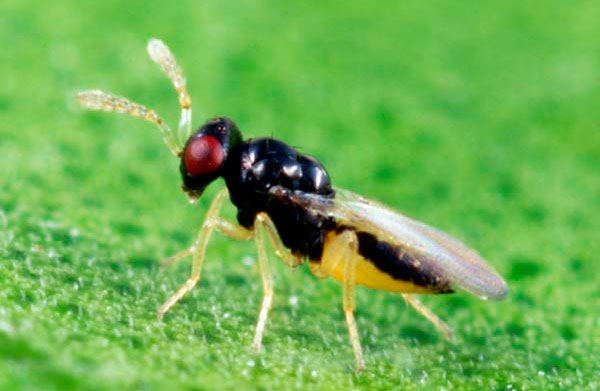By Dusty Baker
A deadly citrus tree disease is resulting in the release of beneficial wasps in San Luis Obispo County.
Citrus trees have been under attack from the tree disease Huanglongbing (HLB). To combat HLB, a series of wasp releases are taking place this week in the county.
“Relatively recently we’ve been doing releases in San Luis Obispo County and that’s because the insects are slowly moving north,” said California Department of Food and Agriculture Environmental Program Manager David Morgan.
“In San Luis Obispo, we’ve had a few infestations of the Asian Citrus Psyllid and we probably have had three, four or five releases of these wasps throughout the county,” said San Luis Obispo County Agricultural Commissioner Martin Settevendemie.
The releases of Tamarixia, also considered small wasps, will take place periodically this week.
“Around the Nipomo area, there were a small number of insects identified a few years ago and so we know that the Asian Citrus Psyllid has been there in the past,” Morgan said.
“Our department will help to release them where the wasp will have the greatest impact on the pest,” Settevendemie added.
Thousands of these beneficial wasps are being released to fight the Asian Citrus Psyllid that carries HLB.
“The insects we release are actually better at finding the pests than we are,” Morgan said.
“We’re not finding a lot of these pests in the county, so our hope is we keep these populations down so we don’t have a bigger problem in the future,” Settevendemie said.
The Tamarixia is considered environmentally friendly in urban areas and will only attack the Asian Citrus Psyllids. “We’re protecting our local landscapes. Almost everybody has a citrus tree in their yard and if we can protect the county from the Asian Citrus Psyllid, we’re also protecting the community and their landscape plans,” Settevendemie said.
A release of these wasps can be anywhere from 8,000 to 10,000 wasps a day in the affected areas. They’re incredibly small and cannot bite or sting people.
The releases have taken place for the last decade, protecting commercially grown citrus, which contributes $7 billion to the state’s economy.
Note — CDFA shot the following video previously with Dr. David Morgan when wasps were released in San Jose.



